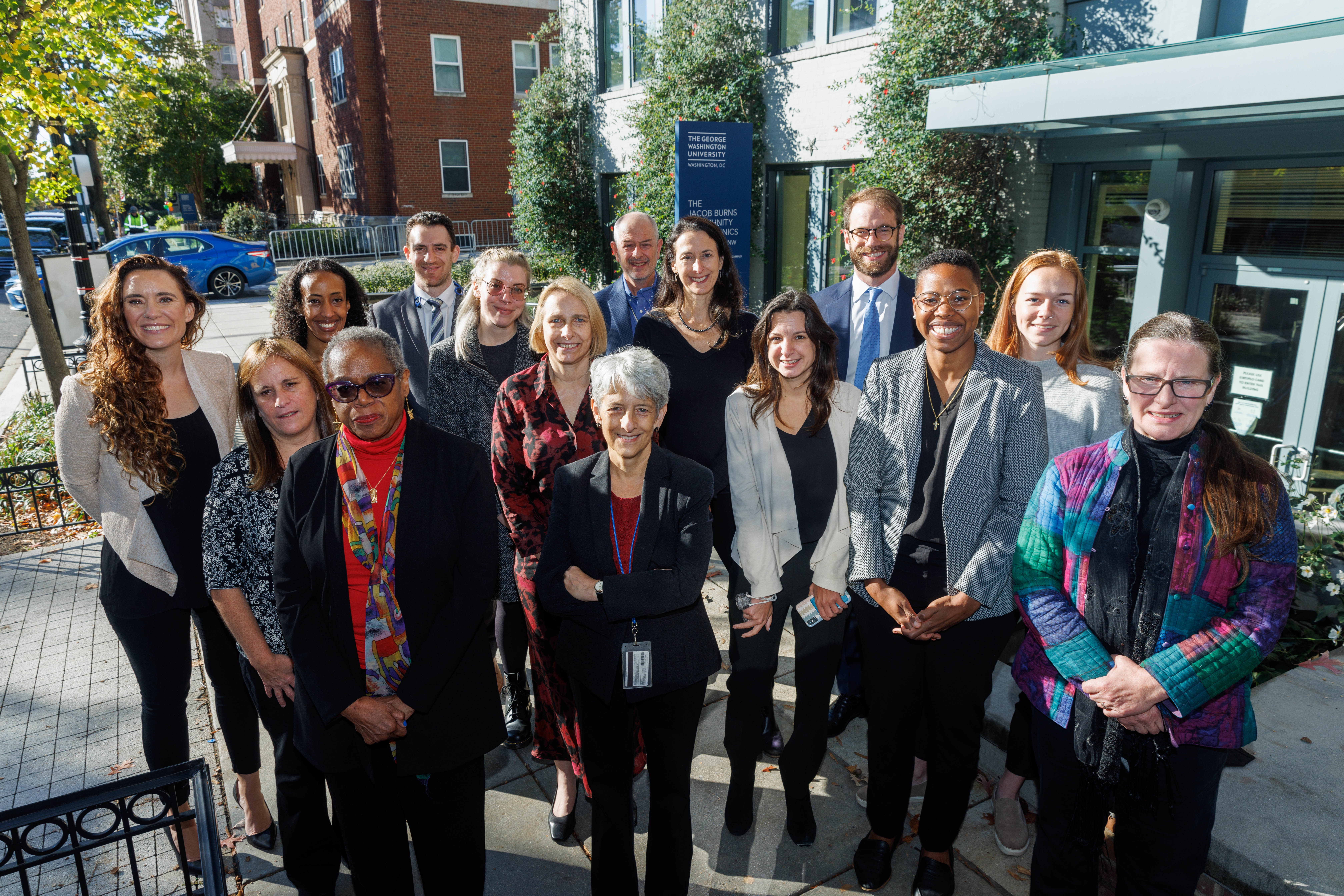A new partnership between the Small Business and Community Economic Development (SBCED) Clinic at GW Law and the Washington Area Community Investment Fund (Wacif) will offer legal assistance and resources to support the formation of worker cooperatives in the Washington, D.C. region.
The SBCED Clinic provides legal assistance to small businesses, social enterprises, nonprofit organizations, and artists. Under faculty supervision, students interview, advise, counsel, and represent entrepreneurs and businesses, as well as assist nonprofit organizations committed to improving the welfare of individuals and communities. “[The SBCED Clinic] plays an important and supportive role in DC's small business ecosystem by representing small and microbusinesses, entrepreneurs, social entrepreneurs, nonprofit organizations, and artists who are unable to afford legal help,” said Professor Susan R. Jones, the SBCED Clinic’s Director.
Wacif’s mission is to promote equity and economic opportunity in underserved neighborhoods in the region. Its mission is driven by three strategic pillars: inclusive entrepreneurship, community wealth building, and equitable economic development. Wacif provides access to capital products and services, and capacity-building technical assistance to low- and moderate-income entrepreneurs.
In 2020, the SBCED Clinic and Wacif co-hosted a webinar that addressed the choices of legal entity for worker cooperatives, which further advanced the work of Wacif’s Greater Washington Center for Employee Ownership program, which also launched in 2020.
“Cooperatives have always been in the DNA of Wacif. Our very first loan was to the Pasadena Housing Co-op. When we launched the Greater Washington Center for Employee Ownership, we were looking to bolster our regional ecosystem, and partner with organizations who are already doing work to support local cooperative businesses. That’s how we came to this partnership with GW Law,” said Jennifer Bryant, Wacif’s Program Manager for Community Wealth Building Initiatives.
With the success of the webinar, the student attorneys are producing a new resource: the Legal and Business Toolkit for DC Worker Cooperatives, which is a unique offering. “There are many resources online about cooperatives, but there aren’t many that are DC specific,” said Ms. Bryant. “We are really excited to be working with GW Law to create some local cooperative resources.”
The collaboration also aligns with the clinic’s pedagogical approaches of service learning and participatory action research focused on helping communities while students learn, said Professor Jones.
“The SBCED Clinic has worked with Wacif informally for many years, but given the challenges and opportunities of the pandemic, we believe a formal collaboration would benefit Wacif's clients while offering student attorneys in the clinic a special opportunity at this time in history to support under represented DC residents, local businesses, and nonprofit organizations,” said Professor Jones.
The partners plan to facilitate a training event when they release the toolkit jointly. The collaboration also includes referrals for legal services. “We will be referring cooperatives that come to the center that need legal support to GW Law,” said Ms. Bryant.
“We hope that this is just the beginning,” said Ms. Bryant. “When we talk about racial equity, we really see employee ownership as a key strategy to build equity in community wealth. When you talk about the wealth gap in our region, we’re actually talking about an asset gap. By giving employees the opportunity to have an ownership stake in the business, then we’re actually working to build community wealth and build equity. The toolkit that we’re developing in partnership with GW Law will also give people the concrete knowledge that they need to start and grow these cooperative businesses.”


